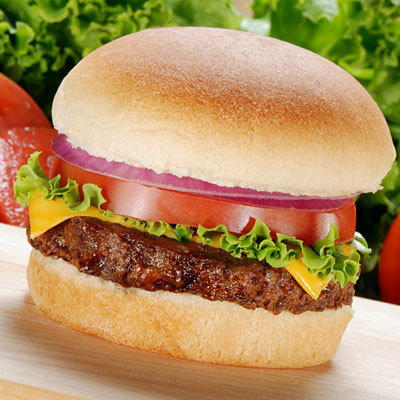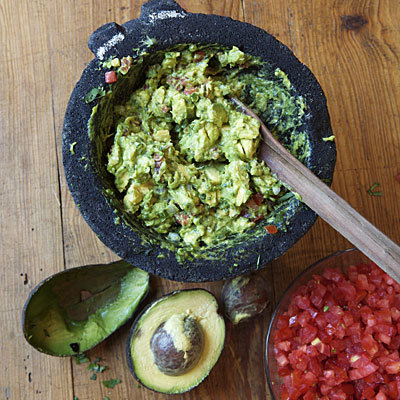The Key To Successful Weight Loss - Balancing Blood Sugar Levels
When you talk about losing weight you're really talking about losing fat. Successful weight loss is not just about losing that excess fat, it's about keeping it off.
Diets, be they low fat, high protein, calories controlled don't work. As soon as you come off the diet the weight just starts piling on again. Diets are just a short term fix. They are often boring and may not give your body the full range of nutrients it needs to keep you healthy. Diets do not provide a long term solution to your weight problems.
The answer is really quite simple. It's eating foods that keep your blood sugar in balance.
Why are blood sugar levels so important to successful weight loss? Every second of every day your body strives for balance and if it cannot achieve this balance your health is compromised. Failure to keep your blood sugar levels in balance leads your body to store more fat and can increase your risk of diabetes and heart disease. When you eat carbohydrates your body turns this into glucose and it travels through the bloodstream to your cells where it will be used for energy. Your very own rocket fuel! Problems start, however, when your blood sugar levels go too high. The pancreas produce a hormone called insulin whose job is to move glucose out of the blood. The more glucose in your blood, the more insulin you produce. If your body does not use the glucose for energy then it will be stored as fat. That's bad news but it can be even worse. Too much insulin hinders the body's ability to breakdown fat that has already been stored. That's certainly a double whammy. And let's not forget the risk of diabetes and heart disease. So now is the time to consider the effect of what you eat on your blood sugar levels
Does this scenario sound familiar? You're running late so you pick up a large latte and a bagel on the way to work. Around about eleven you're feeling peckish so you have a coffee and a biscuit or two or three. For lunch it's a cheese sandwich made with white bread and a large cola. Around about three you're feeling tired so it's a large coffee.
Your blood sugar levels have been rising too high and then falling too low all day. Your blood sugar levels have been out of balance all day. It's not just the food consumed that's been playing havoc with the blood sugar levels. The stimulants, including caffeine, found in cola and coffee (remember decaffeinated coffee still contains stimulates other than caffeine) force the body to produce adrenalin and this too raises the blood sugar level.
So that's the problem, now let's focus on the solution.
Keeping your blood sugar levels nice and steady throughout the day is the key to long term weight loss success. The goal is steady weight loss based on an enjoyable, varied eating plan that you can stick to for the rest of your life. You'll eat protein, carbohydrates, lots of fresh fruit and vegetables and some fats. Remember, this is not a diet.
You've probably heard of the glycemic index (GI) which rates carbohydrate food for its effect on blood sugar levels. A high GI number indicates the food is fast releasing. A baked potato scores 85, a sweet potato scores 61 but whole-wheat spaghetti would be a better choice at 37. To keep blood sugar levels steady, your carbohydrate intake should be based mainly on slow releasing foods. If eating a fast releasing carbohydrate, and these should only be eaten occasionally, then it must be combined with some protein. There are many books available listing the GI scores of common foods.
There is one problem with GI. It fails to take account of the quantity of food eaten. Carrots and chocolate have roughly the same score, they are both in the high 40s but you may nibble on one small carrot but, let's be honest, you don't just have two pieces of chocolate, you have the whole bar.. That's where GL (glycemic load) comes in. It takes into account both the GI score and the available carbohydrate (total carbohydrate less fiber) in the quantity of food being eaten. This is going to be the next 'hot topic'' in weight loss. There are already a number of books on the subject plus there are GL tables on the Web.
Protein has a role to play, too. Combining proteins with slow releasing carbohydrates helps you to burn fat. Your pancreas will produce a hormone called glucagon and your body will break down your stored fat and burn it for energy when it needs more than it is getting from the food you eat.
Okay, that's the theory but what do you eat? For a start, you are not going to go hungry. You are going to eat three meals and two snacks a day eating between 38-42 GLs a day whilst you're trying to lose weight and 45-50 GLs a day when you've reached your target weight.
For breakfast you must have both carbohydrate and protein. You could have 2oz of porridge, half a cup of blueberries, a dessertspoon of ground flax and pumpkin seeds served with some skimmed or soya milk. Or how about low fat live yogurt with half cup of blueberries (or strawberries or an apple or pear) and a dessertspoon of ground flax and pumpkin seeds. Or try a sugar free muesli, a dessertspoon of ground flax and pumpkin seeds, soft fruit of your choice and skimmed milk or soya milk or natural yogurt. Or would you prefer scrambled eggs on one slice of whole-wheat or rye toast. Aim for a breakfast of between 9 and 12 GL.
For lunch and dinner, imagine a medium sized plate. Your going to fill one half of it with non starchy vegetables such as salad leaves, aubergine, broccoli, cabbage, celery, zucchini, cucumber, mushrooms, onions, peppers, tomato and spinach. One quarter of the plate will be filled with protein. Choose from tofu, skin free turkey, skin free chicken, fish, eggs, quinoa, lentils and beans. You can have lean red meat no more than three times per week. The remaining quarter is carbohydrate such as pumpkin/squash, carrots, corn on the cob, pasta, brown rice or potato. Aim for each meal to be between 9 and 12 GL. These meals may be smaller than you are used to but remember you get a morning and afternoon snack too.
For snacks have fruit such as strawberries, apple, plums, cherries, peaches or some melon. Eat with a few nuts (nothing added) or pumpkin seeds. Or you could have some hummus and raw vegetables such as broccoli. Aim for each snack, to be no more than 5GL
Plan your meals and snacks in advance so that you can make sure you are keeping within your GL limit for each day.
Use GL and count your way to weight loss success and lifelong weight management.
Isobel Whytock is the author for http://www.1st-for-weight-loss.com where you can find many tips and inspirational articles on weight loss. This article is Copyright 2005 1st-for-weight-loss.com and may be reprinted and used on other sites providing this information and credit remains on the article with all links intact.
-
Living with the Arm Liposuction Scars
Some people have arm liposuction to help with their self image as they
-
Target Belly Fat with Cardio
-
Weight Loss, Exercise, and New Years Resolutions - Why They Dont Work?
We have all set them, and we will revisit them again
-
How To Assess Your Weight Loss Diet And Exercise Routine
Before you make any big life-changing decision, you will likely assess
-
A Weight Loss Program To Keep You Healthy
Be conscious of the health risks that excess weight pose be
-
Fiber Weight Loss Supplements
Fiber weight loss supplements use the power of fiber to
- DON'T MISS
- How To Lose Weight
- How to Lose Weight - 3 3 Tips to Start a Weight Loss Program Sure-Shot Success
- How Does The Nutrisystem Weight Loss System Work? Does It Actually Work Well? How Much Weight Can You Lose?
- Weight Loss Without Workouts
- Lipo-6 Black Reviews
- 7 Most Popular & Effective Diet Plans!
- Phen375 - Why Is It So Popular?
- Turbulence Training - Are Hours of Cardio Necessary for Fat Loss?
- 10 Tips for Fast Weight Loss
- Ultimate Acai Max




